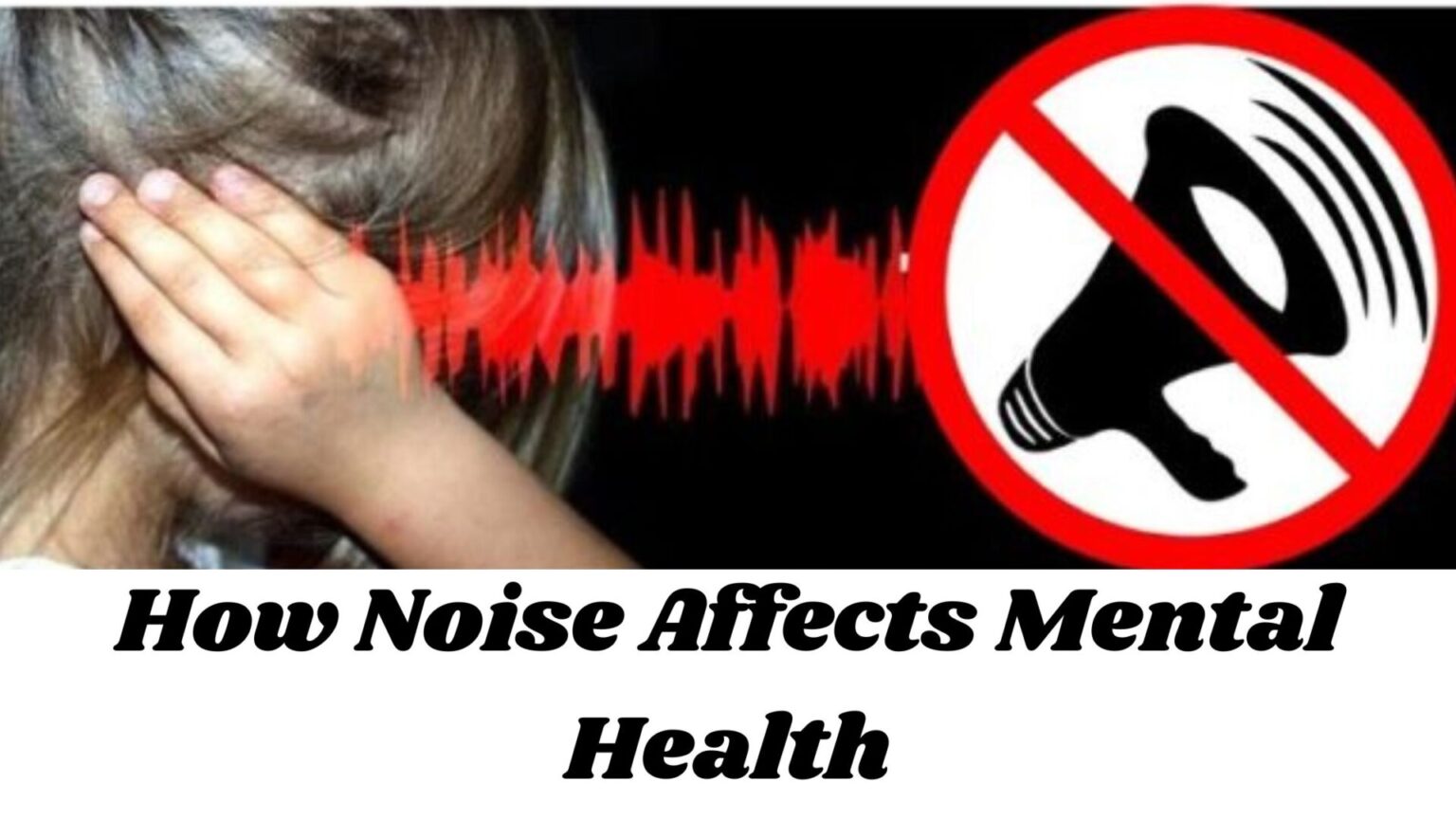Introduction:-
“Soundscapes and Serenity: How Noise Affects Mental Health”

In the modern world, where bustling cities and constant activity are the norm, finding moments of peace and quiet can be a challenge. However, the impact of noise on mental health is profound and often underestimated. In this article, we explore the relationship between noise and mental well-being, shedding light on how soundscapes can either promote serenity or contribute to stress and anxiety.
“Amidst the cacophony of noise lies the silent erosion of our mental well-being.”
How Noise Affects Mental Health?
- The Power of Sound: Sound is an integral part of our environment, shaping our experiences and influencing our emotions. While pleasant sounds like birdsong or gentle music can evoke feelings of calm and relaxation, loud or intrusive noises such as traffic, construction, or noisy neighbors can have the opposite effect, triggering stress and agitation.
- Stress Response and Noise: Exposure to loud or continuous noise activates the body’s stress response, leading to the release of stress hormones like cortisol and adrenaline. Over time, chronic exposure to noise pollution can contribute to persistent stress, anxiety, and even mood disorders such as depression.
- Sleep Disruption: Noise can also interfere with sleep quality, disrupting the body’s natural sleep-wake cycle and leading to sleep disturbances or insomnia. Whether it’s the honking of car horns, the rumble of machinery, or the chatter of neighbors, unwanted noise during nighttime hours can impair sleep and leave individuals feeling fatigued and irritable the next day.
- Cognitive Impacts: In addition to affecting mood and sleep, noise can also impair cognitive function and concentration. Studies have shown that exposure to excessive noise levels can reduce attention span, impair memory recall, and hinder productivity, particularly in learning or work environments where focus and concentration are crucial.
- Vulnerability to Noise: While noise affects everyone to some degree, certain individuals may be more susceptible to its negative effects. This includes children, the elderly, individuals with sensory processing sensitivities, and those with pre-existing mental health conditions such as anxiety disorders or PTSD, who may experience heightened distress in noisy environments.
- Promoting Soundscapes for Mental Wellness: Creating tranquil and harmonious soundscapes can have significant benefits for mental health and well-being. Whether it’s through soundproofing measures, urban planning strategies, or personal lifestyle choices, reducing noise pollution and cultivating quiet spaces can enhance relaxation, promote better sleep, and support overall mental wellness.
- Finding Quiet in a Noisy World: In a world filled with constant stimulation and noise, prioritizing moments of silence and serenity is essential for mental health. Whether it’s through mindfulness practices, spending time in nature, or seeking out quiet retreats, finding ways to escape the clamor of everyday life can nourish the mind, body, and soul.
- Advocating for Change: Recognizing the importance of soundscapes for mental well-being, there is a growing movement advocating for noise reduction initiatives in urban planning, workplace design, and public policy. By raising awareness about the impact of noise pollution and advocating for quieter, more peaceful environments, we can create healthier, more sustainable communities for all.
What are the 5 effects of noise pollution? What are the ways to avoid them?
Noise pollution can have various detrimental effects on both physical and mental health, as well as on the environment. Here are five common effects of noise pollution and ways to avoid or mitigate them:

- Hearing Loss and Damage: Exposure to high levels of noise can cause temporary or permanent damage to the delicate structures of the inner ear, leading to hearing loss or impairment over time.
- Ways to avoid: Use ear protection, such as earplugs or earmuffs, when exposed to loud noises, especially in industrial or construction settings. Limit exposure to noisy environments and maintain a safe distance from sources of loud noise whenever possible.
- Sleep Disturbance: Noise pollution can disrupt sleep patterns and impair sleep quality, leading to fatigue, irritability, and increased risk of health problems such as insomnia and sleep disorders.
- Ways to avoid: Create a quiet sleep environment by using soundproofing measures such as double-pane windows or white noise machines. Limit exposure to noise before bedtime and practice relaxation techniques to promote better sleep quality.
- Increased Stress and Anxiety: Persistent exposure to noise pollution can trigger the body’s stress response, leading to elevated levels of stress hormones such as cortisol and adrenaline. Chronic stress can contribute to a range of physical and mental health problems, including anxiety, hypertension, and cardiovascular disease.
- Ways to avoid: Minimize exposure to noisy environments whenever possible, especially during times of relaxation or rest. Practice stress-reduction techniques such as mindfulness, meditation, or deep breathing exercises to help manage stress levels.
- Impaired Cognitive Function: Noise pollution can impair cognitive function and concentration, leading to reduced productivity, difficulty focusing, and impaired learning and memory retention.
- Ways to avoid: Create a quiet study or work environment free from distractions and background noise. Use noise-canceling headphones or soundproofing materials to minimize external noise interference. Take regular breaks and practice relaxation techniques to maintain cognitive performance and mental clarity.
- Negative Impact on Wildlife: Noise pollution can disrupt natural ecosystems and wildlife habitats, affecting animal behavior, communication, and reproductive patterns. Loud human-made noises, such as construction, traffic, and industrial activities, can interfere with animal migration, foraging, and breeding activities.
- Ways to avoid: Implement noise mitigation measures in sensitive wildlife habitats, such as establishing buffer zones or time restrictions for noisy activities. Use quieter technologies and construction methods to minimize disturbance to wildlife populations. Raise awareness about the importance of protecting natural habitats and minimizing human-induced noise pollution.
Overall, reducing noise pollution requires a combination of individual actions, community initiatives, and policy interventions to promote quieter, more sustainable environments for both humans and wildlife. By taking proactive steps to minimize noise pollution and its harmful effects, we can protect our health, well-being, and the natural world.
In conclusion,
soundscapes play a significant role in shaping our mental health and overall quality of life. By understanding the effects of noise on mental well-being and taking proactive steps to promote tranquility and serenity in our surroundings, we can cultivate a more peaceful and harmonious existence for ourselves and future generations.






